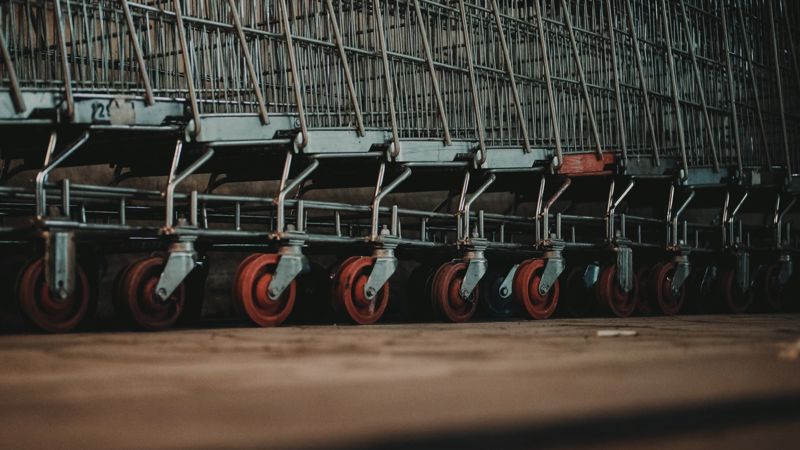
As part of its response to concerns raised by Covid-19, the UK’s Competition and Markets Authority has stated that it “wants to ensure that traders do not exploit the current situation to take advantage of people”.
Andrea Coscelli, head of the CMA, has said: “We urge retailers to behave responsibly throughout the coronavirus outbreak and not to make misleading claims or charge vastly inflated prices. We also remind members of the public that these obligations may apply to them too if they resell goods, for example on online marketplaces.” The US Department of Justice is investigating alleged “price gouging” by sellers on Amazon’s Marketplace.
As I have been sitting at home in isolation, I have been thinking about the economic and competition aspects of these statements. I’d like to highlight three issues in particular.
First, in relation to the legal basis on which to identify “vastly inflated” prices, I would be interested to hear views from the legal community. My experience suggests that excessive pricing cases are extremely difficult to bring, as the ongoing Flynn-Pfizer saga demonstrates. And if the much higher prices aren’t misleading, and hence contrary to various consumer protection laws and advertising standards, I’m not sure what other basis there might be for bringing a case (legal scholars, please shout). I note that the CMA is considering whether to ask for greater legal powers, which I return to below.
Second, I am interested in the role of reputation, and how it is related to firm size. My hypothesis is that small traders are more likely than large firms to try to raise their prices. This is for two main reasons, both to do with the importance of reputation. To start with, large firms will probably be more concerned about scrutiny of their pricing decisions – both because they are in the public eye and because adverse social media comment could have a very material impact on their business (see this article in The Times today for some discussion). Secondly, small traders may reckon they are less likely to remain in business in the medium term, and so may want to take advantage of increased demand and short supply in the short run. Larger firms, by contrast, are more likely to survive and so would be fearful of adverse reputational or regulatory consequences down the line. This would be consistent with the current concerns mostly relating to firms selling through platforms such as eBay, Alibaba and Amazon Marketplace - although these seem primarily to be to do with allegations of false and misleading information to create impressions of supply shortages.
(I note reports that Sports Direct has materially increased prices for some home exercise equipment. If true, this means my hypothesis might be wrong. Or it could be that Sports Direct didn’t place much weight on the potential blow to its reputation, or it could be an exception to the general proposition.)
If time shows this hypothesis to be right, then it creates a further problem for enforcement by the competition authorities when they consider bringing excessive pricing abuse of dominance cases. I suspect they will find it a challenge to prove that a small firm is in a dominant position under prevailing case law. This perhaps underlies the desire by the CMA to obtain wider legal powers. It will be interesting to see whether the US authorities get anywhere with their investigations of small traders selling through online marketplaces - see for instance this Competition Policy International article – and on what basis.
A third issue is the interaction between objective legal standards and the role of fairness. In a previous post about the interaction between fairness and competition law, I have argued that there is no single objective concept of fairness from an economic perspective that could readily be translated into legal rules. The references to “exploitation” and “behaving responsibly” in the statements above suggest an appeal by the CMA to concepts of fairness. Accordingly, one might expect the CMA – if it asks for greater powers – to seek the ability to tackle “unfair” pricing. If this does transpire, careful thought would have to be given to several questions: what “fair” and “unfair” might mean; whether these are fixed concepts or whether they need to adjust to prevailing societal norms; how such an adjustment should be made when social circumstances are extremely unusual and changing rapidly; and when any powers to prevent “unfair” prices should be withdrawn as the market situation normalises. There is a danger that the CMA may turn itself into a market-wide price regulator, which would give it a very wide remit for investigation and intervention. This could lead to adverse consequences for consumer welfare if the basis for intervening to affect prices is unclear and is restricted to specific circumstances.
The CMA may realise that it can’t, in practice, do much about examples of high pricing by many firms, absent misleading behaviour. Its statements may thus be aimed at encouraging or intimidating firms into doing the right thing. But, in the absence of appropriate safeguards or sunset provisions, potential problems loom in the medium term if the CMA receives wider powers to fix some of its concerns over the consequences of Covid-19. But perhaps we should get through the short term first.



